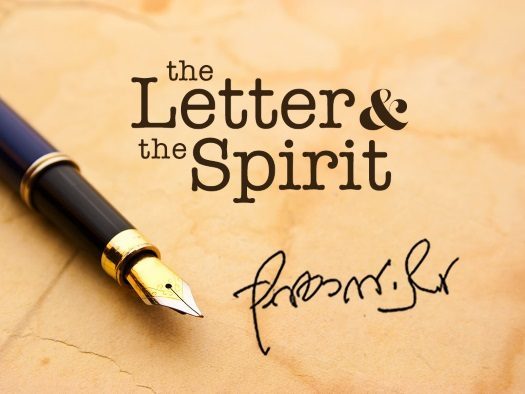
Weekly Letter: Does Torah Conflict Theory of Evolution?
This week, we present a letter from the Rebbe in answer to claims that the Torah view does not necessarily conflict with the theory of evolution. The letter, written originally in English, is from the archives of the Rebbe’s personal trusted secretary, Rabbi Nissan Mindel.
***
By the Grace of G-d
Rosh Chodesh Shevat, 5738
Brooklyn, N.Y.
Rabbi
United Orthodox Synagogues
Houston, Texas 77096
Shalom uBrocho:
I am in receipt of your letter in which you touch upon the question of evolution from the viewpoint of Torah, citing sources in B.R. and elsewhere, according to which the concept of evolution would not seem incompatible with the Torah view; hence you conclude that, since the Creation account in the Torah appears to be in conflict with science, it need not be understood literally and there is no need, therefore, to insist that the world is 5738 years old, particularly as this would estrange our youth from religion, etc.
In reply, I must say that your dialectic is rather surprising, for it seems that you are not familiar with the position of modern science bearing on this subject. Apparently you are unaware that modern science in effect declares that it cannot speak in categorical terms, much less in terms of absolute truth, but only in terms of probability (Heisenberg’s “principle of uncertainly”). This is one of the most fundamental changes that distinguish modern science from the 19th century science. What this means is simply this: that even in the realm of observable phenomena, any scientific conclusion or generalization (“law”) must remain in the realm of probability, with a greater or lesser degree of likelihood, but it can never be absolutely certain. How much more so in areas where, by the very nature of things, conclusions are theoretical and hypothetical to begin with, as, for example, on the question of the origin of the universe, the age of the world, etc.
Of course, a scientist may believe that his theory is true, and declare it to be so, but then he speaks not as a scientist, but as a believer.
Moreover, of all scientific theories, the theory of evolution is one of the weakest, despite its popularity; it is full of loopholes and internal inconsistencies. Indeed, it has been recognized as such by the majority of leading scientists in the field – although this has not yet found its way into standard textbooks. It has been rejected not because it is in conflict with belief in a Creator, but because it is scientifically untenable.
In other words, precisely from the viewpoint of modern science, the Creation account in Bereishis cannot be refuted.
The only alternatives they can offer are no more than hypothetical, and most of these have been refuted by other scientists, so that by and large they are mutually exclusive and contradictory.
As for your contention that the matter of the age of the world is not essential to the Torah view – much can be said to show the fallacy of this assertion. Suffice it to mention that the very idea of the institution of Shabbos kodesh is based on the literal meaning of the Bereishis account,as the seventh day which G-d hallowed immediately following the six days of Creation preceding it – days, and not “eons.” As it is also reiterated in the Ten Commandments and many times elsewhere in the Torah.
In the Halachah, too, suffice it to mention that, as you know, the text of a get must be very exact and punctilious, and the text invariably begins with the date and year “according to the Creation of the world.”
With regard to the sources you cite and the Gedolei Yisroel you mention who apparently did not reject evolution – this does not detract from their general authority. In this case, however, they were motivated by the consideration you mention in your letter, namely to attract those who might be swayed by scientific theories – especially at a time when many thought science almost infallible. This was particularly true in Germany, where many young Jews attended universities and found themselves somewhat perplexed by the apparent contradiction between Torah and science. Hence they resorted to the apologetic approach, which is also true of other well-meaning rabbis who added their share to the apologetic literature in other sectors.
However, the net outcome of the apologetic approach has been negative and self-defeating. For sooner or later the apologetic nature of it is discovered with the consequent loss of credibility on the part of the apologists. For, after all, the whole point of our religion is that it is Toras Emes, not “maybe.” And who knows, perhaps this apologetic approach has made the first breach and opened the road to “conservative Judaism” ad more radical movements, on which we need not elaborate here.
Needless to say, all the above has been said in full cognizance of the Drush Or Hachayim of the Baal TiferesYisroel, where the said Midrash in Ber. R. is cited and similar sayings of our Sages, including also from Kabbalah; and apparently the author accepted the theory of evolution. And although the real meaning of those passages has been explained in an entirely different sense, by Gedolei Yisroel before and after- the attempt to stretch their meaning to fit scientific opinions then held is understandable in light of the then prevailing acceptance of scientific conclusions as indisputable, coupled with the good intention that underlies all the apologetic literature. However, in light of modern science, as noted above, this approach is both obsolete and unnecessary.
Certainly in this day and age of modern science, there is no reason to orthodox Rabbis and scientists to accept the evolution theory and similar secular theories. There is no conflict between science and the Torah inasmuch as they are two different disciplines, the former dealing with probabilities while the Torah speaks the absolute truth. There is therefore no need to take the verses of Bereishis out of their context and do violence to their plain meaning which has come down to us from Sinai all through the generations, and about which there has never been any difference of opinion among all the Torah exegetes without exception, up to about 200 years ago.
Moreover, experience has shown that contemporary youth will more readily respond to an open and honest exchange of views, and whether or not they will immediately accept the Torah position and translate it into personal commitment, they will at least respect the candor and conviction; whereas if they are offered a compromising alternative and they will realize that it was given them in order to lure them to the Torah and mitzvos, they will lose all respect and confidence. Let’s have more confidence in our Jewish youth.
With esteem and blessing,
P.S. I had occasion to meet with some prominent scientists who were quite familiar with the above-mentioned points about the nature of modern science and the weakness of the evolution theory. When I asked them why they do not publicize these views or convey them to their students, the reply was that so entrenched are the old notions and so hard it is for many scientists to take the new, that to come out with it openly would be tantamount to committing “scientific suicide.” Scientists are, after all, also only human beings.
I must add- though I do not like to speak disparagingly about anyone – that while catholics are not afraid to come out openly against the evolution theory and certain non-Jewish denominations even tried to introduce the Biblical account of the Creation into the public school, Jewish scientists are still reluctant to take an open stand in this matter.
***
The above letter is from The Letter and the Spirit by Nissan Mindel Publications (NMP).
These letters were written originally in English and were prepared for publication by Rabbi Dr. Nissan Mindel, whose responsibility it was the Rebbe’s correspondence in English and several other languages.
We thank Rabbi Shalom Ber Schapiro, who was entrusted by his father-in-law Rabbi Mindel with his archives and who is Director of the Nissan Mindel Publications (NMP), for making the Rebbe’s letters available to the wider public. May the merit of the many stand him in good stead.
















Bracha sudak
Thank you for making public the Rabbi’s letter. We need a צדיק in a גוף to effect the spirit in C.H.